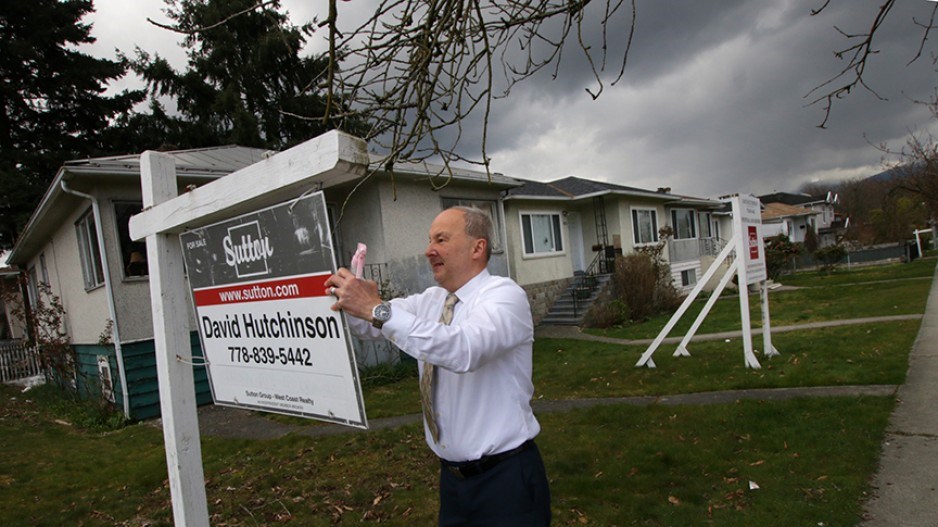Real estate brokers, analysts and investors are bracing for the impact of the COVID-19 pandemic, and what could be a rough ride for residential real estate in Metro Vancouver throughout the rest of 2020.
While overall sales in March were up 46.1% compared with March 2019, that apparent strong performance needs to be put in context. March 2019 was an extraordinarily bad month for home sales as it had the lowest total number of home sales during March since 1986 and was 46.3% below the previous 10-year March sales average.
Insiders also point out that there is a lag in recording sales. Most home sales take several weeks to close, meaning that a good chunk of the March sales would have been agreed to before mid-March, when governments started incrementally instituting restrictions on travel, entertainment and social gatherings.
The consensus is that the first reliable litmus test for the strength of home sales will be in be in April, and everyone Business in Vancouver spoke with said that home sales will fall as a result of fewer people looking at homes during the early weeks of being ordered to distance themselves from others.
This is despite the Bank of Canada cutting its benchmark interest rate to a record low 0.25%.
Some buyers may aim to get out of purchase agreements signed in February and March, but Sutton Group West Coast Realty broker David Hutchinson told BIV that courts are unlikely to be accommodating.
B.C. has no force majeure provision in its sales agreements, meaning that buyers cannot argue that unforeseen circumstances related to the pandemic merit cancelling the contract.
“The deposit will be in the respective realtor’s trust account,” he said. “It’s security for the purchase. If they don’t follow through, the deposit would go to the seller.”
That seller, he added, may also take the buyer to court for breaking the contract and sue for any difference in price if the home is later sold for less than the originally agreed sale price.
Hutchinson said that the number of home-sale transactions will fall in part because unemployment has spiked and banks tend not to provide mortgages to people who are not working.
“You might have a very motivated buyer, but they’ll have no purchasing power,” he said.
Real estate agent, analyst and blogger Steve Saretsky agreed. He suggested that many mortgages provided in recent months were likely to people now unemployed and struggling to keep their heads above water.
“Foreclosures will move higher, for sure,” he said. “It’s a bit of a mess, but I don’t think we’ll see a lot of this filter into the market for another three to six months.”
An additional challenge for those aiming to sell their homes is that mom-and-pop investors who have investment properties might be forced to put those units on the market, Saretsky said.
City of Vancouver bylaws forbid anyone from putting a secondary home on short-term rental websites, but Saretsky believes many people have evaded these restrictions. Those previously Airbnb-listed homes would then compete with other properties for buyers or renters, potentially driving prices down.
“Vancouver has been a really good real estate market for 20-some-odd years, and people were extrapolating recent performance and were obviously more OK with negative cash flow in condos.”
Saretsky added that owners who had been relying on their second home to increase in value and were willing to pay strata fees, taxes and mortgage payments that left them cash-flow negative are likely to reassess their investment.
Their predicament is why Real Estate Investment Network senior adviser Don Campbell has long made it a mantra for his network’s members to buy an investment property only when it can be cash-flow positive.
Campbell told BIV that the COVID-19-prompted economic shock is likely to have a “psychological effect” on investors that is as significant as any economic hit that they endure.
He envisions highly leveraged mom-and-pop investor couples having some serious conversations.
“They’ll say, ‘We’ve been living on the edge forever. We might want to reassess what we’re doing,’“ Campbell said.
“This is early days here, but we’ve got an ugly four weeks coming up.”
Campbell acknowledged that the situation is changing so rapidly that predictions can be overtaken by events almost immediately, but he is convinced that a trend toward deleveraging is likely to happen because of this economic shock.
“It will happen slowly because a lot of people are locked into five-year mortgages,” he said. “All real estate trends – actual trends, as opposed to reactions – have a long tail to them. They take a while to hit into the market.” •




